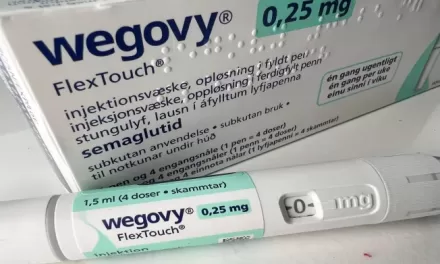June 17, 2024
A recent study reveals that depression experienced during adolescence is associated with worse thinking and memory skills in middle age, shedding light on the long-term consequences of early-life mental health issues on cognitive functions.
Study Overview
The study, led by Dr. Leslie Grasset from the University of Bordeaux in France, tracked 3,117 participants with an average starting age of 30 over two decades. The diverse cohort included 47% Black and 53% white participants. Every five years, researchers evaluated the participants for depressive symptoms using questionnaires that assessed changes in appetite, sleep, concentration, and feelings of worthlessness, sadness, or loneliness. Higher scores indicated more severe depressive symptoms.
Participants were categorized into four groups based on their depressive symptom progression: persistently low symptoms, medium decreasing, persistently medium, or high increasing symptoms. Notably, Black participants were disproportionately represented in the persistently medium and high increasing symptom groups, with 52% and 70%, respectively.
Impact on Memory Skills
At an average age of 55, participants underwent three tests to evaluate their thinking and memory skills. One of these tests measured processing speed and memory by having participants match symbols to numbers as quickly as possible. Scores ranged from zero to 133, with lower scores indicating worse cognition.
Results revealed that participants with persistently low symptoms scored an average of 73, while those with high increasing symptoms averaged 57. After adjusting for factors such as age, physical activity, and cholesterol levels, significant differences in cognition were evident.
Black participants in the high symptom group scored 0.64 standard deviations below those in the low symptom group. Among white participants, the high symptom group scored 0.40 standard deviations lower than their low symptom counterparts.
Verbal Memory and Cognitive Function
The study also standardized scores for verbal memory, processing speed, and executive function tests, adjusting for education, blood pressure, and cholesterol. Black participants with high and medium depression had notably worse memory and cognitive scores compared to those with low symptoms. Similarly, white participants with high depressive symptoms showed poorer verbal memory and processing speed.
“Our results suggest that Black adults are not only more likely to experience worse depressive symptoms trajectories, but these symptoms may lead to worse repercussions on thinking and memory as early as middle age. This may help explain some of the disparities in dementia risk at older age,” noted Dr. Grasset.
Socioeconomic Inequalities
The study emphasizes the importance of considering racial inequalities when designing interventions to reduce dementia risk. “Having more depressive symptoms may be due to inequalities in socioeconomic resources such as housing and income, as well as access to health care and treatment,” said Dr. Grasset. “Racial inequalities should be accounted for when designing interventions to reduce a person’s risk of dementia.”
Study Limitations
A limitation of the study is that depression was self-reported, and no clinical diagnosis of depression was available. This means some participants might not have accurately reported their symptoms, potentially affecting the results.
Overall, this study underscores the importance of addressing mental health issues early in life and considering racial and socioeconomic factors in healthcare interventions to mitigate long-term cognitive decline.
Tips for Handling Depression
If you feel depressed, it’s crucial to seek help and take care of yourself. Start by talking to someone you trust, like a friend, family member, or counselor. Sharing your feelings can provide relief and support. Consider seeking professional help from a therapist or doctor, who can offer guidance and treatment options like therapy or medication.
Engage in activities that you enjoy and that can lift your mood. Regular exercise, even a short walk, can boost your spirits. Maintain a healthy diet and get enough sleep. Avoid alcohol and drugs, as they can worsen depression. Practice mindfulness and relaxation techniques, such as deep breathing or meditation, to manage stress. Stay connected with loved ones and participate in social activities.
Remember, it’s okay to take small steps and be patient with yourself. If you ever feel overwhelmed or have thoughts of self-harm, seek immediate help from a crisis hotline or emergency services. You are not alone, and help is available.











